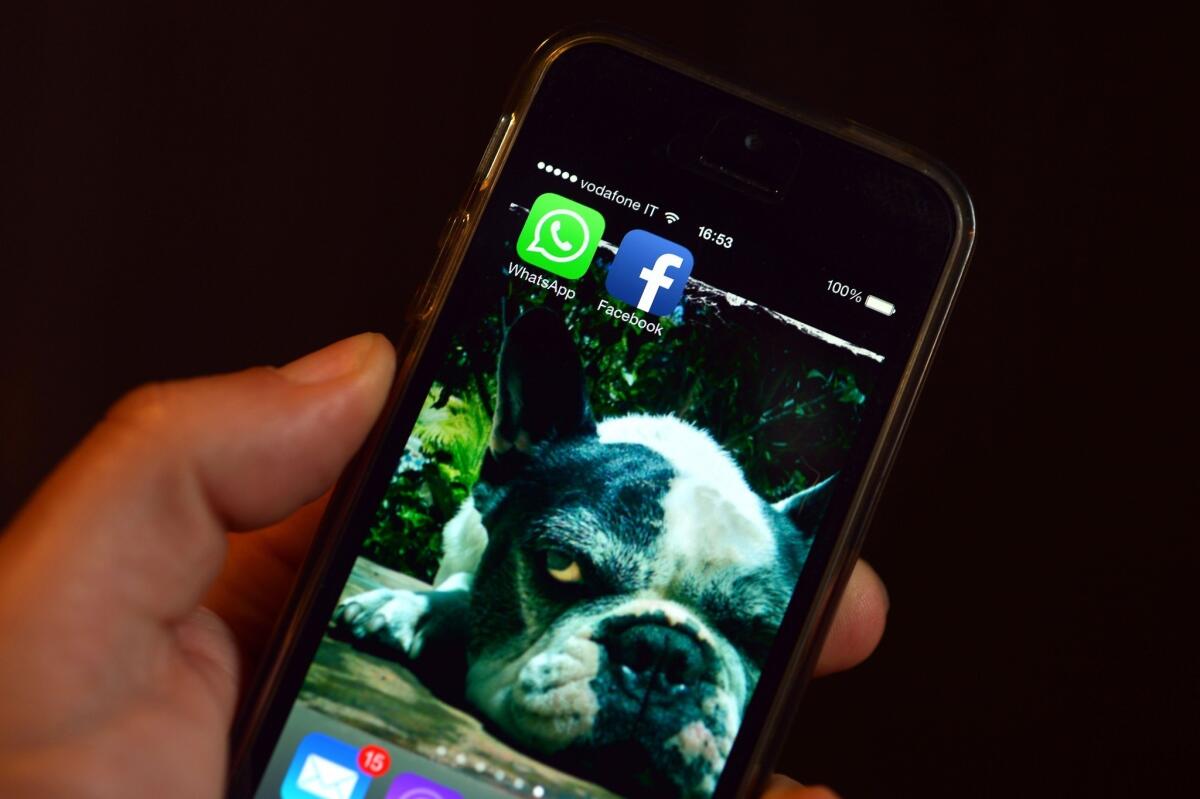Where does WhatsApp acquisition rank in history of tech deals?

One day later, Silicon Valley is still trying to pick its collective jaw off the floor following news that Facebook is going to buy WhatsApp for $19 billion.
Even in a region accustomed to seeing companies pay big bucks for other companies with little or no revenue, or even the whiff of a business model, this one came as a shocker.
But where does this one rank in the history of tech deals?
QUIZ: How well do you know Facebook?
That’s a bit harder to answer than you may think. In part, it depends on how one defines a tech company. But let’s take a look at some other mega deals to see how this one stacks up.
AOL-TimeWarner: This was the stinkaroo deal that came to define the dot-com era. Now, is it a tech deal, since it’s hard to consider TimeWarner a tech company? Who knows and who cares. The price tag is still epic: $147 billion in cash and stock.
JDS Uniphase and SDL: Two names that will no doubt have you scratching your head. JDS Uniphase was a fiber optics company based in San Jose. Starting in 1999, JDS became the leading fiber-optic company as it used its skyrocketing stock to acquire 11 rivals. JDS announced in the summer of 2000 it was buying the Zurich, Switzerland-based SDL for $41 billion in stock. But by the time the deal closed, JDS’ stock had taken such a beating that the deal was only worth $13.5 billion.
(JDS was a name largely unknown to the general public, but its collapse was catastrophic. When I last checked in 2007, records from the state of California showed that the two largest public employee pension funds had lost more than $520 million on JDS stock.)
Biggest venture-backed deal: According to the Wall Street Journal, the $19 billion Facebook is paying for WhatsApp is the most ever for a venture-backed company. No. 2 was U.S. West Media’s purchase of Continental Cablevision for $11.8 billion in 1996.
Biggest Silicon Valley deal: The San Jose Mercury News says the WhatsApp price tag is also the most ever paid for a Silicon Valley company. It appears the next biggest was the $10.3 billion Oracle paid for PeopleSoft in 2005 (although PeopleSoft was based in Pleasanton, well to the east, which means some would quibble about whether it was valley company or not).
The Mercury News does note some other big deals involving Silicon Valley tech companies: Hewlett-Packard bought Compaq (Texas) for $19 billion in 2002; HP bought EDS (Texas) for $13.9 billion in 2008; Google bought Motorola Mobility (Illinois) for $12.5 billion in 2011; HP bought Autonomy (Jolly Old England) for $11.1 billion in 2011.
Biggest California deals: The folks at 451 Research M&A KnowledgeBase ran the numbers to see what was the most paid for a California company since 2002.
At the top of this list was Symantec’s purchase of Veritas for $13.5 billion in 2004.
Buyouts: This is another category of deals to consider. These are acquisitions, but typically by investors of some kind rather than another company.
Last year, investors including founder Michael Dell paid $24.5 billion to buy out Dell shareholders and take the company private. Also in 2013, Softbank paid $20.1 billion to acquire 72% of Sprint’s stock.
Way back in 2000, Silver Lake Partners paid 13.5 billion to take disk driver maker Seagate private.
So, even though it’s tough to compile a straight-up list, the $19 billion clearly puts WhatsApp in the upper ranks of tech deals. It seems only eclipsed by AOL-TimeWarner and the buyouts, and is about neck-and-neck with HP-Compaq.
What sets the Facebook purchase apart, of course, is that just about every other company on this list was may times larger than WhatsApp in terms of employees and revenue.
The WhatsApp deal is all about potential. We’ll see if it pays off in the long run.
ALSO:
Where does WhatsApp rank in history of tech deals?
Google offered to pay $10 billion for WhatsApp, report says
Users threaten to delete WhatsApp now that Facebook is buying it







